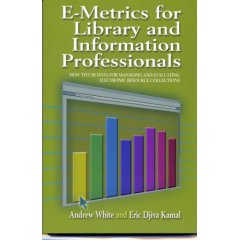Why Librarians are better than Google
Just to make you feel appreciated ...
It is from YALSA, but if the YA doesn’t apply to you, then just mentally delete the letters and read “Librarians”.
Five Reasons Why (YA) Librarians are Better than Google:
5. Google locates only web sites, while YA librarians find all typesof resources in any format.
4. Google requires you to design your own searches, but YA librarianshelp you plan an effective search strategy.
3. Google leaves it up to you to sort through the mountain of results,while YA librarians assist you in selecting information to meet yourspecific needs.
2. Google provides no quality control, but YA librarians always have aPlan B if your search yields no results.
1. Google is an inanimate web site with no ability to offer moralsupport, but YA librarians are real people who can dispense thingslike encouragement, high fives and even hugs.
Beth Yoke Executive Director Young Adult Library Services Association, fastest growing division of the American Library Associationwww.ala.org/yalsa
tags:

